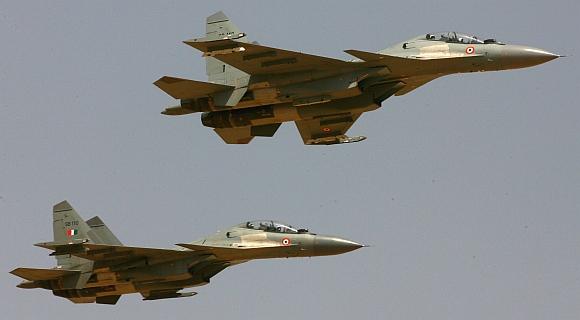
Pakistan's "secret war" - separatist movement in Baluchistan province - and the military build-up by India has been ranked high by the prestigious Foreign Policy magazine for events and trends that were overlooked this year, but may be leading the headlines in 2012.
The unique list, released on Monday and topped by India's military build-up, has Mexico's drug war, US immigration crackdown and expanding wings of piracy as other events that have missed the spotlight they needed.
It says: India is now the world's largest weapons importer, according to a 2011 report by arms watchdog SIPRI, accounting for 9 per cent of the world's international arms transfers -- most from Russia -- between 2006 and 2010.
India will spend an estimated $80 billion (about Rs 400,000 crore) on military modernisation programs by 2015, according to an estimate from the Washington-based Centre for Strategic and International Studies.
...
With inputs from PTI
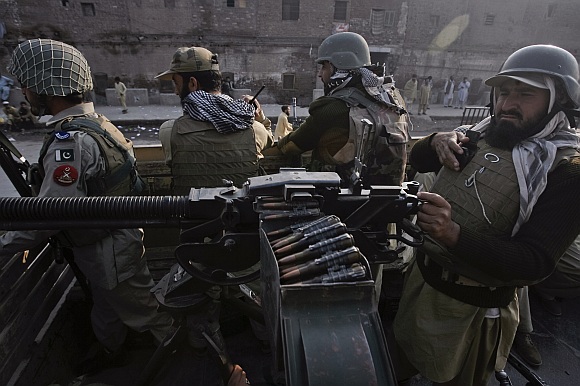
Ranking "Pakistan's Other War" on sixth slot, Foreign Policy says Baluchistan may be Pakistan's largest province, covering nearly half the country's land area, but the raging separatist violence in the region -- sometimes called Pakistan's secret war -- gets only a fraction of the attention that the country's other crises receive.
It says:
Separatist groups, the largest of which is the Baluchistan Liberation Army, have been waging an insurgency since 2007 in the resource-rich province, which borders Iran and Afghanistan.
It's the fifth Baluchi uprising since Pakistan's independence in 1947, and even by the country's standards, the province appears increasingly out of control.
Baluchistan saw the highest number of militant attacks of any Pakistani province in 2010, and the trend has continued in 2011, with multiple bombings of key gas pipelines, the murder of Punjab settlers who have moved to the region, and the assassinations of several prominent politicians and oil-company employees, the magazine writes.
The magazine adds, "For now, the Pakistani government is benefiting from the scant media attention given to the region and its problems. But it can't be swept under the rug forever".
...
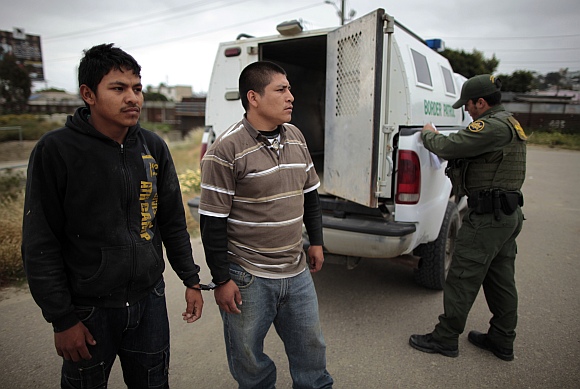
There are an estimated 11.9 million illegal immigrants in the US constituting four percent of the population, according to a recently-released study.
According to Foreign Policy, Despite US President Barack Obama's pledge to pass comprehensive immigration reform -- a goal repeatedly stymied in Congress -- deportations have reached all-time highs.
A record 392,000 undocumented aliens were deported in fiscal 2010, and this past fiscal year that number was nearly 400,000. As of October, almost 1.2 million people had been deported under the Obama administration, compared with about 1.5 million over the eight years of George W Bush's presidency.
The administration has also been cracking down on the employers of illegal immigrants. Twice as many businesses were investigated in the first year of the Obama administration as in the last year of Bush's term.
...
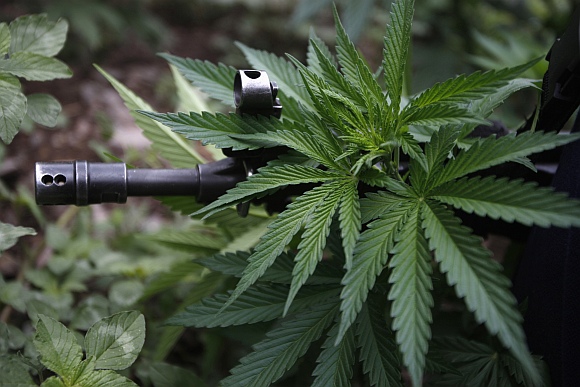
Since Mexican President Felipe Calderon began using the army to contain the violence four years ago, rival gangs have escalated their turf battles over smuggling routes, and thousands upon thousands have lost their lives.
According to Foreign Policy, drug mafias such as the Sinaloa and Zetas cartels, in search of new territory and looking to escape the Mexican government's crackdown, are increasingly setting up shop in the politically fragile states of Central America.
With the addition of Belize and El Salvador this year, all seven countries in Central America are now on the White House's list of major drug-trafficking states.
Sixty percent of the cocaine that enters the United States through Mexico first travels through Central America, according to a Congressional Research Service report. Homicide rates in four of the seven countries have increased significantly in the last five years -- in Honduras, they've more than doubled, the magazine says.
...
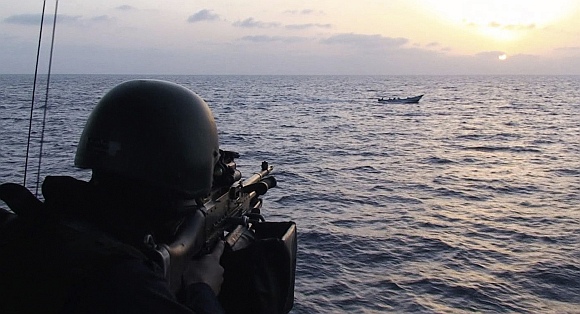
Until 2008, when pirates operating off the coast of Somalia hijacked a ship full of Russian tanks and an oil supertanker, the crime drew limited international attention.
By early 2009, more than a dozen countries (including India) had deployed their navies to the Gulf of Aden to counter piracy, and the United Nations passed four resolutions in 2008 on the issue.
According to Foreign Policy, the hottest new zone for pirates is West Africa, whose oil-rich Gulf of Guinea has seen a spike in attacks this year. Nineteen attacks were reported off the coast of Benin in 2011, after none in 2010.
There were also six off the Nigerian coast and three off the coast of Ghana. Many more likely go unreported. In October, the presidents of Nigeria and Benin held the region's first ever head-of-state summit devoted to piracy.
Even Peru, where piracy is virtually unheard of, saw an attack this year on a Japanese fishing trawler by a gang of criminals calling itself the "pirates of the sea." Overall, the first nine months of this year saw 352 attacks -- a record level, says the magazine.
...
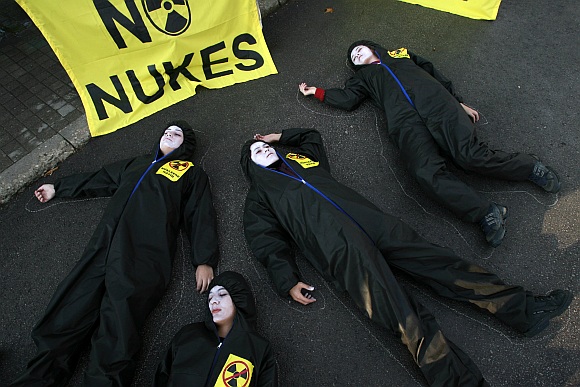
According to Foreign Policy, at the end of last year, the administration achieved two of the planned steps toward that goal with the ratification of the New Strategic Arms Reduction Treaty nuclear arms reduction treaty with Russia and the hosting of a 47-nation conference on nuclear security.
America can't account for 5,900 pounds of "weapon-usable" nuclear material that it once shipped overseas to help other countries' civilian nuclear programs, according to a Government Accountability Office report issued in September.
There have been 500 cases of attempted cross-border smuggling of nuclear materials in the last 15 years, according to United Nations data. Many more likely go undetected.
The New START may have been progress, but the finish line of a world without nuclear weapons is still a long way off.